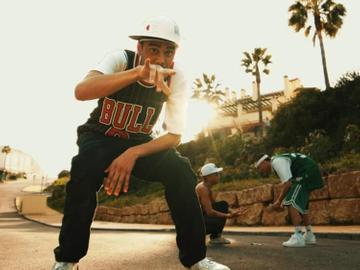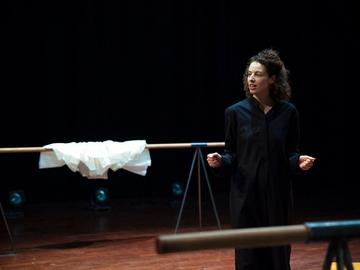When, in late 2015, The New York Times asked itself whether Brussels was now the new Berlin, it was largely thanks to the city's appeal to a whole host of (inter)national artists. In the five years since, Brussels has lost none of that allure. Precy Numbi, Khadija El Kharraz Alami, Chuki Beats and Hanane El Farissi, all fairly new residents of Brussels, tell us what binds them to the city.
Chuki Beats
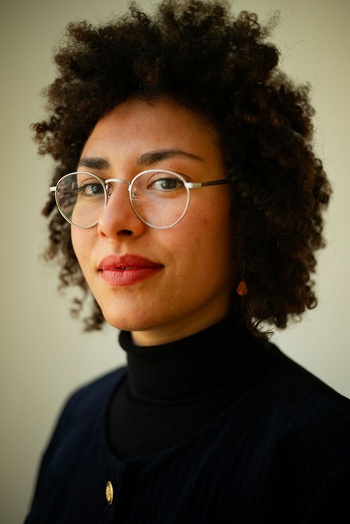
© Ivan Put
Hanane El Farissi
visual artist
Moroccan visual artist Hanane El Farissi graduated from the Institut National des Beaux-Arts de Tétouan in 2013, from La Cambre in 2017, and she has also obtained a postgraduate degree from HISK in Ghent. She works with different media, such as installations, photography, sculptures. Currently, her solo project “In the Way of Transmuting” is on display at the Marie-Laure Fleisch gallery in Ixelles. She lives in Saint-Gilles, has her studio near Wiels in Forest, and commutes between Rabat and Brussels whenever possible, as an “ambassador” of and for both her home countries.
“When I had the choice between France and Belgium for my Master's degree, I chose the country I then didn't know. And I took the opportunity to visit museums and galleries. I had been interested in the Flemish Primitives for a long time, so I really wanted to see some old masters I knew from books in real life. They still play a role in my work.”
Belgians are interested and curious
Through her postgraduate degree at HISK, El Farissi also saw the differences between the two Belgian cities, even though they are close to each other. “Brussels is clearly a cosmopolitan and somewhat chaotic city but it still has a certain softness. For a capital city, there is less violence than in other major cities.” She also thinks it is an open city. “Definitely on an artistic level. Belgians are interested and curious about other cultures and international art. On an administrative level, there are challenges, especially for those who are not of European origin. Sometimes it is very exhausting and, at the same time, sobering that you can't be just an artist, but must also remain a number at the Office of Immigration.”
El Farissi also enjoys the green spaces, the architectural richness and the jazz and has several projects in the pipeline. “That is also one of the assets of Brussels: there is a lot of culture all year round. That in turn attracts artists from all over the world, making the city a real base.”
.
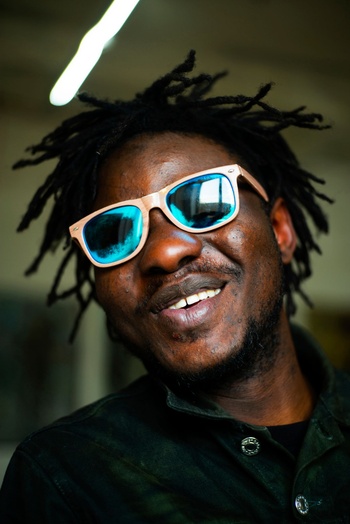
© Ivan Put
Precy Numbi
visual and performance artist
“These days, I walk with both feet and my eyes somewhere between Brussels and the Congo. To keep my balance, I need to be on the move all the time.” A graduate of the Academy of Fine Arts in Kinshasa, Precy Numbi has made a name for himself by strolling the crowded streets of the Congolese capital in “robot sapiens” costumes fashioned from pieces of plastic and metal scrap salvaged from car wrecks, hoovers and washing machines. He calls them the Kimbalambala family. Eco-futurist pythias who warn us about the consequences of over-consumption and the one-way migration of waste.
“I came to Europe to find peace and rest because I had some bad experiences with the police in Kinshasa. There, as things are, it is not easy for a young artist to express himself in the streets.”
I came here to find peace and rest
He moved to Brussels where he discovered a city that was more multicultural than he expected. “I immediately felt very comfortable in all the Afrodescendant communities.”
In his adopted city, he continued to expand his family of characters with decolonisation figures like Patrice Lumumba. People react differently on the streets in Africa compared to the streets in Europe, but his superheroes are universal. “My work has no language, has no race and has no gender, although there are things I do here that I couldn't do in Kinshasa and there are things I couldn't do in Brussels.”
The street is his preferred arena of expression. With his living sculptures, he can reach people who do not go to museums directly. “In Brussels, whether I'm working with the homeless or inviting a cyclist with a shoulder injury to put on a superhero costume, I'm a psycho-therapeutic repairman. My characters give you the courage to stand up.”
.
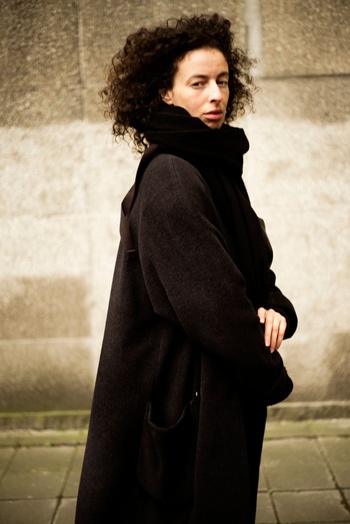
© Ivan Put
Khadija El Kharraz Alami
theatre maker
Theatre maker Khadija El Kharraz Alami is a born and bred Amsterdamian who studied in Utrecht, also lived in Rotterdam, but moved to Anderlecht, near Bruxelles-Midi, just over a year ago. Since January 2020 she has been in residence at Kunstenwerkplaats Pianofabriek and on the eve of the first lockdown in the Kaaitheater, she played her performance Nu ben ik Medea (“Now I am Medea”). The lockdown briefly forced her to go back to the Netherlands, but in August she decided to come and live here. As part of the series “Re-claiming Space” at the Kaaitheater, she is currently preparing her own staging of The Waves by Virginia Woolf.
Here, everyone is the other
“I already knew Brussels, as I have been coming there since 2011. I had to leave my home in Rotterdam anyway, so why wait any longer? Brussels has always attracted me because I see myself in the people who walk around here. It feels like everyone here is 'the other'. The anonymity appeals to me. Despite the social divide that there also is, the diversity is attractive. The streets are not as ordered as in the Netherlands with boxes telling you where to put your bicycle. It is at the same time a very beautiful and very ugly city. The administration is sometimes frustrating and the digitalisation slow, but the rules are not so rigid that people do not get a second chance. I like the fact that loopholes are more the norm. (Laughs) The complexity of Brussels creates a tardiness that keeps me, always in speed mode, in balance.”
Artistically, too, the new environment proves fruitful. “I needed new people and new energy. Here I am just 'the Dutch girl'. Not that I necessarily want to be that, but this way I can develop a new narrative with more artistic space and freedom, instead of constantly having to fight that battle to be able to be there as someone of Moroccan origin amidst the racism and discrimination of the institutions. Experimentation is also welcome here and the world of art and culture is very lively here. And I can also improve my French.” (Laughs)
.
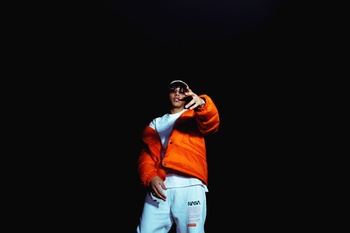
Chuki Beats
hip-hop producer
“I expect there are hip-hop islands in many other cities, like Ghent and Antwerp, but Brussels is the only city with a real scene, and I simply had to be part of that to reach the next level of my career.” YouTube phenomenon Chuki Beats is full of praise for his new home. The beatmaker – born Yuki Asemota in Lokeren in 1995 – moved to the capital two years ago, where he regularly invites MC's into his studio, no matter what language they rap in. “As a beatmaker I feel like a bridge between Brussels artists and the rest of Flanders. By working with Zwangere Guy, Yung Mavu and Frenetik I try to bring different influences together.”
I just had to be part of the Brussels scene
Asemota started making beats at 13, after his guitar teacher gave him a CD-ROM with the music production programme Cubase. He now manages two successful YouTube channels (one with beats and 640,000 followers, the other with tutorials and almost 400,000 followers), runs his own label with young talent 32WORLDWIDE and won a Jamie in the category “best dance & music” at the first Flemish online video awards this year. “My career started online, so I didn't really have much of a local fan base – barely 1.8% of my audience on YouTube are Belgians. By coming to live here, my online life seems to have become real in a way.”
After an EP and some singles, he is currently preparing his first album that should be released this summer. “A journey into my subconscious,” he describes it. “Under the influence of the Brussels MC's, I now make beats that sound more 'street'. Although French-speakers tell me I bring a lot of American schwung. I often go to New York, LA or London, where the scene is established, but I'm very proud to be part of this Brussels movement. That also resonates on the single '3am in Bxl'. Brussels made me realise that it can be even bigger.”
Right now, he wants to take to the stage himself as a producer-artist, and if there is any time left, he would soon love to explore the capital further with his BMX.
Read more about: culture, hanane el farissi, chuki beats, Precy Numbi, Khadija El Kharraz Alami
